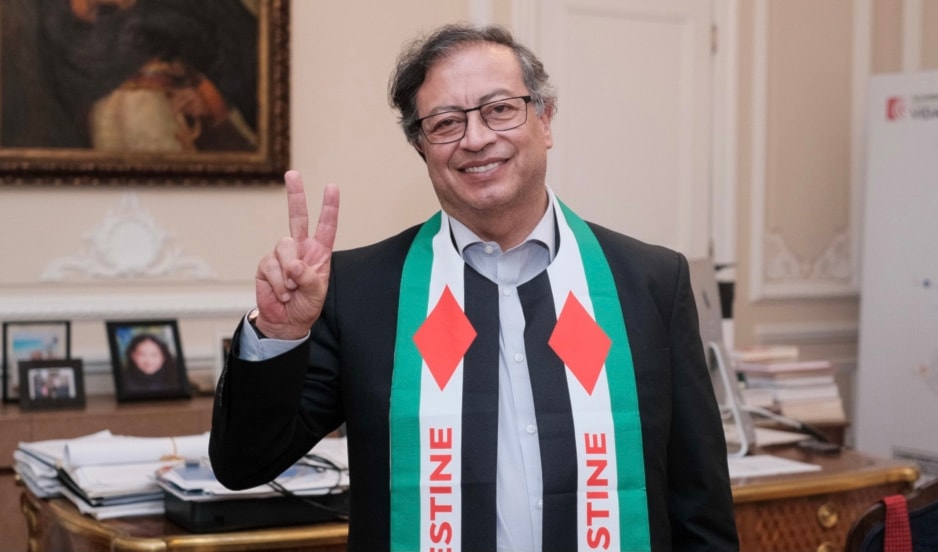Opposing 'Israel's' genocide on Gaza is not anti-Semitism: Colombia
Petro condemned the silence of tens of thousands of journalists while their colleagues and 20,000 Palestinian children are being killed and massacred by "Israel".
-

Colombian President Gustavo Petro wearing a Palestinian scarf, undated. (PressTV)
Colombian President Gustavo Petro rejected anti-Semitic accusations related to his pro-Palestine stance, arguing anti-Semitism is manifested in the murder of Gazan children and not advocating against the ongoing Israeli genocide.
Petro countered claims by the US Special Envoy to Monitor and Combat Anti-Semitism, Deborah Lipstadt, that the president's criticism of "Israel's" aggression on Gaza was "harmful" since it "normalizes" anti-Semitism.
"Madam Ambassador, Palestinians are Semites...It is anti-Semitic to kill children by dropping bombs in Gaza and not to oppose it. The most anti-Semitic thing today is to repeat Hitler's holocaust on humanity and especially on the Palestinian people," he stated.
"I am not an anti-Semite. Do not confuse and respect. I am not anti-Jewish."
The Colombian leader condemned tens of thousands of journalists for remaining silent while their colleagues and 20,000 Palestinian children are being killed and massacred by the occupation.
"Anyone who defends this genocide or remains silent in the face of it has destroyed their own human condition," he added.
Colombia's Petro urges sailors to not transport coal to 'Israel'
On August 20, Petro urged "all the sailors of the world" to refuse to transport coal to the Israeli occupation entity.
"May all the sailors of the world and our Indigenous peoples refuse to transport coal from any country to Netanyahu," Petro posted on his account on the X platform, a week after signing a decree officially banning coal exports to "Israel".
Colombia is "Israel's" primary coal supplier, with exports totaling approximately $450 million in 2023, according to the Israeli embassy in Bogota.
The Colombian leader said in early June that his country's coal exports to "Israel" would cease "until the genocide is stopped."
His post was in response to a report citing experts who claimed that the decree "violates free economic competition regulations" and is "constitutionally unfeasible and poses a risk to Colombia's economy."

 2 Min Read
2 Min Read










